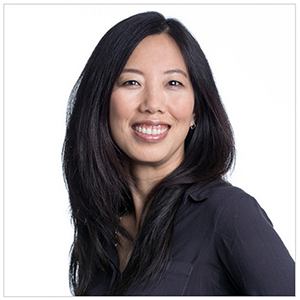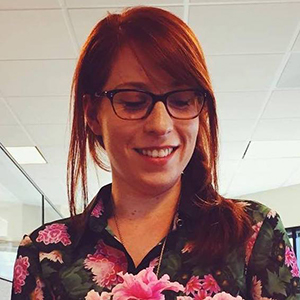Melinda Wu joined Rubrik in 2015 as the VP of Product Operations. With over 20 years of experience leading supply chains and manufacturing, she is an in-house expert in building and scaling strong teams. I had the chance to sit down with Melinda and chat about the biggest learnings in her career and her approach to building an inclusive workforce.

You’re an industry veteran who has worked at leading tech companies like Hewlett Packard and Cisco. Why did you choose to join Rubrik, which at the time was only one year old?
While the business model and technology were compelling, it was the energy and passion of the founders that sealed it for me. Bipul was magnetic. When he described his long-term vision for the company, I knew I wanted to be part of what they were building.
What’s one of your proudest moments in your career?
I’ve had the opportunity to work with a lot of amazing people in my career, but I’m most proud of my time here at Rubrik. I joined when the company was roughly 50 people, so helping it grow to a recognized industry leader with over 1,400 employees is extremely rewarding. I’m proud of all the work that we, as a company, have put in these last five years and know that this is just the beginning of the journey.
At Rubrik, our culture is centered around our core values: Relentlessness, Integrity, Velocity, Excellence, Transparency (RIVET). Do you have your own set of core values?
In all honesty, RIVET really encompasses my own core principles both in and outside of the workplace. Integrity and transparency are foundational to both my leadership style and personal relationships and align with my focus on meritocracy. Outside of RIVET, I value listening to opposing ideas and celebrating both my own and my colleagues’ mistakes.
Which qualities or skills do you think are most underrated in the workplace?
The most underrated skill is vulnerability, especially in the context of saying “I don’t know.” A common misconception is that you must always have the right answer to be successful. But by admitting you don’t know something, you help foster a culture of curiosity and often learn something deeper in the process. In my experience, those who are willing to show their vulnerabilities and knowledge gaps are the ones who grow faster in their careers.
What’s one mistake you made early on in your career, and what did you learn from it?
Early on in my career, I equated being a good friend to excelling at your job. In other words, the people I liked the most were also the ones that, in my eyes, were the most successful in their roles. As a young engineer, I had lots to learn from people that weren’t “just like me” but who had unique viewpoints and experiences.
By narrowing my field of vision to only those who I viewed as personal friends, I missed the opportunity to explore different perspectives and approaches.
What action can companies take to build and scale an inclusive workforce?
Building an inclusive workforce requires continuous education. I would encourage companies to invest resources into education about gender and other forms of bias and to take actions to counter them. These actions include having diverse interview panels and defining clear criteria for hiring and measuring success in the workplace. I also think it’s essential to focus on meritocracy and establish common goals across teams.
How do you drive inclusion within your own organization?
We listen to each other. We prioritize understanding each others’ viewpoints and how our words or actions impact others within the team. Doing this allows us to find common ground and work together more effectively.
It’s also important to remember that inclusion is not just about work deliverables, but also about acknowledging that we’re each individual with lives outside of work. We take the time to share personal stories, enjoy team lunches, and just listen to each other.
What advice do you have for women aspiring to be future business leaders?
Leadership is about getting everyone to pull in the same direction. Sometimes you have a group of like-minded folks and it comes easily, but other times you have to convince, cajole, and bargain to get where you want to go. I encourage them to take risks and look for opportunities to take on new responsibilities.
Who is your biggest role model?
I don’t have a “biggest” role model because I’m more inspired by a person’s portfolio of traits rather than a single person. The list of leaders who inspire me includes Indra Nooyi, Oprah Winfrey, Sheryl Sandberg, and Ruth Bader Ginsburg. A theme among these leaders is that they push beyond the scope of their jobs and are strong, impactful advocates for women.
Want more executive insights from Rubrik leaders? Explore our Leadership Lab series.
